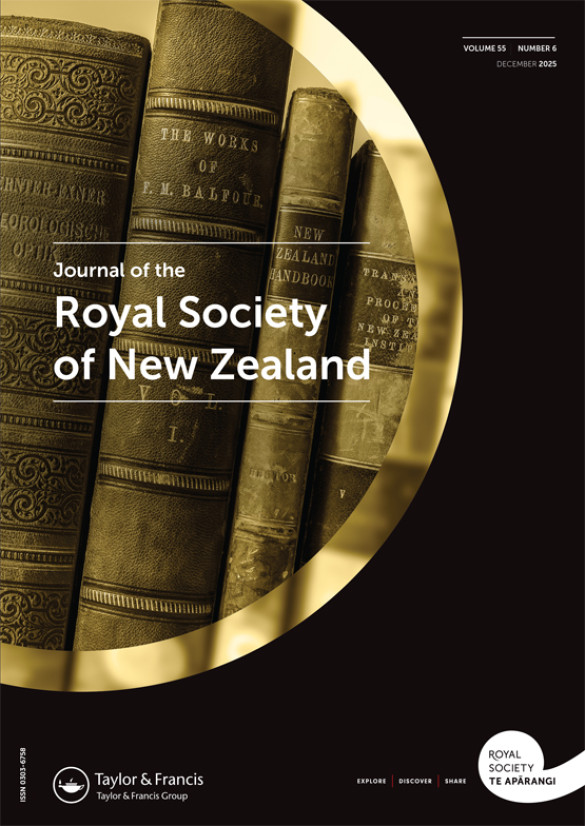News
Published 29 September 2025JRSNZ Call for Papers: Special Issue on Antimicrobial Resistance: An Integrated, Multisectoral, and Transdisciplinary Response

Antimicrobial resistance (AMR) is a global health emergency that spans across human, animal, and environmental domains. It challenges conventional boundaries between disciplines, sectors, and systems, and demands a collective response that is both informed by science and shaped by policy, equity, and lived realities. AMR is not solely a medical or microbiological issue: it is a development, sustainability, agricultural, and environmental concern, with social, economic, and political dimensions. Addressing it effectively requires transdisciplinary collaboration, multisectoral coordination, and a One Health approach grounded in shared accountability.
While the scientific basis for AMR, its mechanisms, drivers, and burden is increasingly well understood, the translation of this knowledge into integrated action remains uneven. Across the globe, and in Aotearoa New Zealand, interventions are often fragmented, siloed, or reactive. Science is essential not only for uncovering the complexities of AMR but also for guiding evidence-based decisions that can shape policies, interventions, and sustainable solutions. A comprehensive response to AMR must connect research to real-world decision-making and policy implementation, integrating perspectives from microbiology, public health, veterinary science, Indigenous knowledge systems, environmental sciences, economics, governance, and beyond.
This Special Issue of the Journal of the Royal Society of New Zealand will explore the opportunities and challenges of implementing integrated, multisectoral, and transdisciplinary responses to AMR. We seek submissions that interrogate not only what we know, but how we act and how we can do better. We encourage contributions that reflect diverse disciplinary traditions and lived experiences, and that critically engage with the political, cultural, economic, and structural contexts that shape AMR and its solutions.
We welcome original research articles, case studies, viewpoints and review papers that speak to this integrated agenda. Topics may include, but are not limited to:
- Molecular mechanisms and genetic basis of antimicrobial resistance, and their implications for cross-species and environmental transmission;
- Surveillance systems across human, animal, and environmental sectors: data integration, governance, and implementation;
- One Health approaches to AMR prevention, including cross-sectoral collaboration, institutional arrangements, and interagency governance;
Behavioural, cultural, and social determinants of antimicrobial use and resistance; - The intersection of AMR and health inequity: challenges for vulnerable communities;
- Environmental dimensions of AMR: water, soil, agriculture, waste, and climate change interactions;
- Regulatory frameworks and policy interventions across sectors, including: lessons learned from past successes and failures;
- Public and community engagement in shaping AMR responses;
- Capacity building, workforce development, and systems strengthening for multisectoral AMR action.
The guest editorial team includes Associate Professor Htin Lin Aung (University of Otago), Dr Aneley Getahun Strobel (Doherty Institute, University of Melbourne), Professor Li Yang Hsu (National University of Singapore) and Professor Greg Cook (University of Otago).
Submission information
Please send a preliminary title, indicative author list, affiliations and a short descriptive paragraph outlining the scope of your proposed manuscript as soon as convenient to the Lead Guest Editor Associate Professor Htin Lin Aung at htin.aung@otago.ac.nz by 30 November 2025.
Authors will be notified of the result and formally invited for full submission by 15 December 2025. The anticipated manuscript submission deadline is 31 May 2026.
See Instructions for Authors on the journal homepage before making a formal submission to the Journal of the Royal Society of New Zealand if your Expression of Interest (EOI) is selected.
Note that an invitation to submit does not guarantee acceptance for publication, which will depend on the outcome of the normal peer review process and authors meeting critical time schedules. Accepted papers will be published online individually with final citation details ahead of their inclusion in the Special Issue collection.
If the corresponding author is affiliated with a growing range of global institutions covered by a transformative agreement with Wiley, they may be eligible to publish their articles Open Access at no cost. Otherwise, publishing under the traditional subscription model is completely free.

